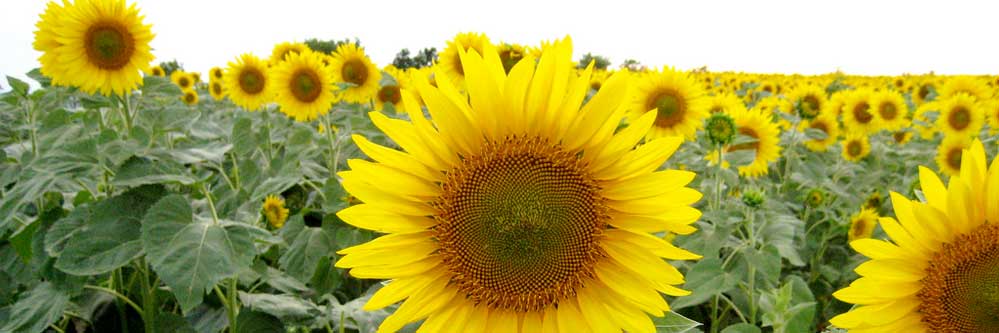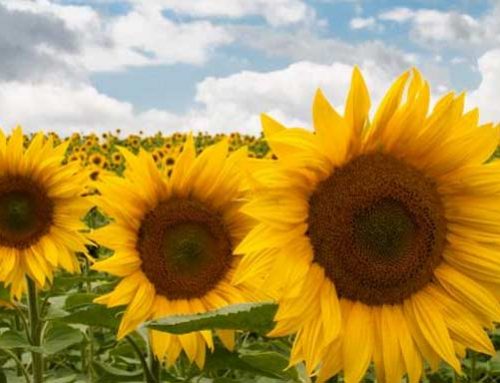For Grant Havel, one of the most rewarding aspects of working with farmers is to achieve their goals throughout the season. An alumnus of Fort Hays State University with a Bachelor’s of Science in Agriculture, Grant is the Division Manager in Northwest Kansas and has been with Crop Quest for 16 years. When developing long term plans for farmers, Grant looks beyond the norm for potential opportunities. Sunflowers have been one of those opportunities proven to be successful for a number of operations in his area.
Sam Turner may not be from the Sunflower State originally, but he does claim sunflowers as his favorite crop to consult on. Graduating from Texas Tech University with an Agriculture Economics degree, he has been an agronomist with Crop Quest since 2009 in Ulysses, Kansas. Sam enjoys the different production practices of sunflowers when compared to wheat, grain sorghum and soybeans.
Together, they have a lot of valuable information to share about the rewards and challenges of growing sunflowers.
The two main types of sunflowers are oilseed and confection (also called non-oil seed). Oilseed sunflowers produce high quality, low saturated fat cooking oil. They are also used for bird seed. Confection sunflower seeds are a snack food and are common fare in salad bars everywhere.
Production of confection and oilseeds is very similar. Sunflowers have a fairly high water use rate, but since their roots penetrate deep into the soil, they are capable of mining more water and nutrients than other crops. They can sustain themselves longer in a drought or low water situation. This gives irrigators options to make better use of water under smaller wells, which Grant notes is very important to his producers.
Stand establishment can be tougher with confection sunflowers. Plan for: uniform seed spacing, slower planting speed and properly calibrated equipment to ward off delayed or uneven emergence.
Even with recent advancements in herbicides, one of the toughest issues faced is weed control. Options tend to be pretty slim for both types, so it’s important to take an aggressive approach. Starting the season with a good burndown herbicide followed with an at-planting or pre emergence application will give a producer the best chance for satisfactory weed control. The good news, in Sam’s experience is: “Sunflowers are a bully when it comes to weeds; as long as the flowers tower over the weeds, they will out-compete them.”
Insect scouting, instead of simply spraying at key growth stages, has become very important in recent years. Fields should be scouted regularly for insects to identify beneficial and harmful insects at critical growth stages of the plant. Confections require more intensive insect management and lower thresholds because any insect damage to the seed will affect the grade and quality of the seeds.
Yield potential tends to be higher in oilseed flowers, but the premium that may be reaped from growing quality large seed confection sunflowers can easily make up the difference. “Confections are strictly graded on seed size, insect damage and foreign matter – especially volunteer seeds from GMO crops previously planted in the field,” adds Sam. The percentage of large, medium and small seeds is counted, and premiums are paid for larger seeds. Seeds that don’t make grade will be rejected. Oil seeds are graded and premiums may be paid for higher oil content and high oleic varieties.
There is a steady demand for oil seeds, so there is typically no problem marketing them. Almost all confectioneries are produced on a contract basis only. Historically, they have drawn a significantly higher price per hundredweight than oilseeds.
Both Grant and Sam’s interests and expertise in growing sunflowers benefit their clients, as well as other agronomists, in making educated decisions on whether flowers are a good option in an operation. Their eagerness to share their knowledge is evidence that they enjoy helping farmers to achieve their highest potential.
Featured image by: Field of Sunflowers, ellenm1, flickr.com

